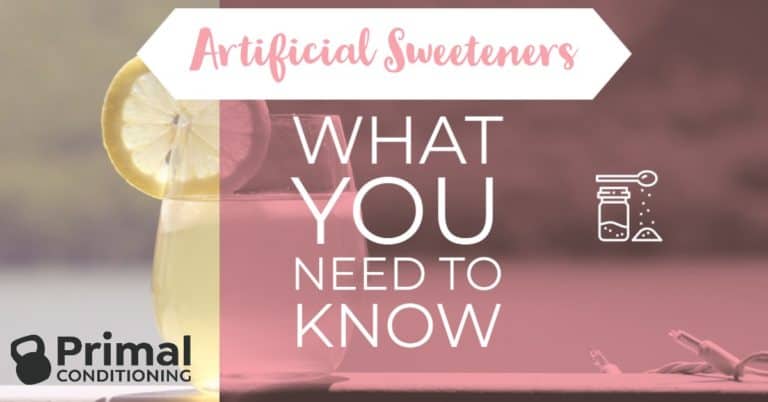Artificial sweeteners may seem harmless… they are easily found in countless packaged foods and drinks and have zero calories. Did you know, a food package labeled “No Artificial Flavors” can still contain artificial sweeteners?!
You’ve probably had plenty of foods with artificial sweeteners hidden on the ingredients list and haven’t even realized it.
Jump to a topic...
How Artificial Sweeteners Affect the Body
Your Sense of Taste May Be Dulled
It Can Boost Craving Intensity
Gut, Mood, Immune and Skin Problems May Be in the Future
Signs to Cut Back on Artificial Sweeteners
You Start Having Digestive Issues
You Begin to Gain or Lose weight Suddenly
You Feel Off for Unknown Reasons
Artificial Sweeteners to Avoid
Aspartame
Saccharin
Sucralose
Acesulfame Potassium
Natural Alternatives to Artificial Sweeteners
Stevia
Xylitol
Agave Nectar
Monk Fruit
What to Prioritize?
As a fitness coach that promotes overall wellness and longevity, I recommend removing artificial sweeteners wherever possible! But I also find the most success when I keep things simple… If you have a go-to drink like diet soda, Sparkling ICE, or Crystal Light, try cutting down your consumption by half. Habits can be hard to break, and the addictive nature of artificial sweeteners make it even harder!
Prioritize healthy swaps for any food or drink that you have more than twice per week. These swaps will make the biggest bang for your buck. You can still have your favorite on occasion, that way you won’t feel guilty on your monthly movie theater date when you order a diet coke. You don’t have to feel deprived while your are in the process of improving your habits. Eventually minimizing artificial sweeteners won’t feel like a “deprivation” because you will be feeling much healthier without them!

